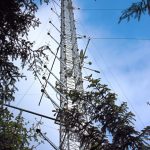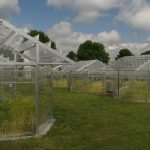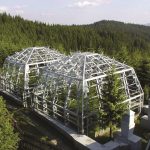 CzeCOS – website
CzeCOS – website
Hosting institution: Global Change Research Institute, CAS
CzeCOS provides to a wide range of users unique facilities for impact studies on effects of global change impacts on aquatic and terrestrial ecosystems (bioreactors, growth chambers, open-top chambers and glass domes), monitoring of greenhouse gases and energy fluxes in terrestrial ecosystems, including impact of effects of changing environmental conditions (ecosystem stations for greenhouse gases and energy fluxes measuring), research of long-distance fluxes of greenhouse gases and air pollutants (atmospheric station), for quantification of metabolic responses and metabolic processes of acclimation or adaptation of different parts of ecosystems on the global changes (laboratory of metabolomics, including analyses of stable isotopes), remote sensing applicable in evaluation of spatial variability of impact of global changes on aquatic and terrestrial ecosystems and for research of carbon cycles and other biogeochemical cycles in higher spatial scale (aircraft and hyperspectral and thermal sensors, Lidar).
CzeCOS is the only one research infrastructure of the Czech Republic dealing with the problem of global change impact on ecosystems and it is crucial part of the pan-European research infrastructures such as ICOS (Integrated Carbon Observation System), AnaEE (Infrastructure for Analysis and Experimentation on Ecosystems) or EUFAR (European Facility for Airborne Research in Environmental and Geo-sciences).
Future development
Developing activities of the CzeCOS in the next years include firstly modernisation of ecosystem stations, including implementation of actual standards of international research infrastructure ICOS on this type of stations. Within field chamber experiments OTC is planned also ecosystem process measurement of Net Ecosystem Exchange of CO2 a H2O (NEE – Net Ecosystem Exchange).
Measurement of ecosystem processes especially measurement of CO2 and H2O fluxes is one of the conditions for inclusion of experimental platforms to the first AneEE research infrastructure level.
Within the eco–biochemical lab it is thanks to use of the new technics of non-targeted profiling and targeted analyses of primary or secondary metabolites, expected the inter-connection of environmental metabolomics and plant ecophysiology. This approach will lead to finding molecular mechanisms associated with plant stress tolerance and deeper knowledge of adaptation and acclimation mechanisms of plants according to change of growth conditions.
Socio-economic impact
CzeCOS provides research on mitigation and adaptation on the negative global change impacts on ecosystems, notably on productive and non-productive ecosystem functions. It helps to develop the sustainability of energy and food production, water management and prediction of sociological and economic impacts of global change.
The complex inter-connection between individual elements of the research infrastructure focused on ecosystem research allows to create and refine models of future impacts on relatively long timescale with high spatial resolution and thus produce outcomes that are demanded by society, policy makers or business community. The significant contribution of research infrastructure CzeCOS is provision of the latest findings and top infrastructure for educational purposes, mainly for universities.



